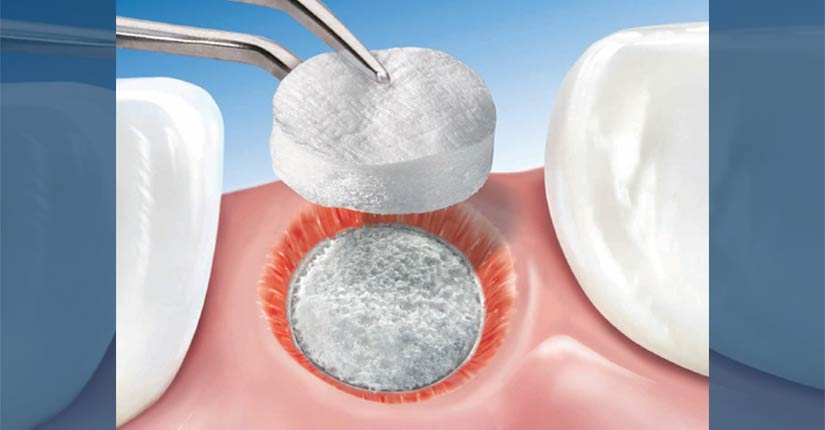
Bone grafting is often closely associated with dental restorations such as bridge work and dental implants. In the majority of cases, the success of a restoration procedure can hinge on the height, depth, and width of the jawbone at the implant site. When the jawbone has receded or sustained significant damage, the implant(s) cannot be supported on this unstable foundation and bone grafting is usually recommended for the ensuing restoration.
There are several major factors that affect jaw bone volume:
- Periodontal Disease – Periodontal disease can affect and permanently damage the jaw bone that supports the teeth. Affected areas progressively worsen until the teeth become unstable.
- Tooth Extraction – Studies have shown that patients who have experienced a tooth extraction subsequently lose 40-60% of the bone surrounding the extraction site during the following three years. Loss of bone results in what is called a “bone defect”.
- Injuries and Infections – Dental injuries and other physical injuries resulting from trauma to the jaw can cause the bone to recede. Infections can also cause the jaw bone to recede in a similar way.
Reasons for Bone Grafts
Bone grafting is a highly successful procedure in most cases. It is also a preferable alternative to having missing teeth, diseased teeth, or tooth deformities. Bone grafting can increase the height or width of the jawbone and fill in voids and defects in the bone.
There are essentially two basic ways in which bone grafting can positively impact the health and stability of the teeth:
- Jaw Stabilization – Bone grafting stabilizes and helps restore the jaw foundation for restorative or implant surgery. Deformities can also be corrected and the restructuring of the bone can provide added support.
- Preservation – Bone grafting can be used to limit or prevent bone recession following a tooth extraction, periodontal disease, or other invasive processes.
Oral Examination
Initially, the surgeon will thoroughly examine the affected area in order to assess the general condition of the teeth and gums. If periodontal disease is present or the adjacent teeth are in poor condition, these factors will be fully addressed before the bone grafting procedure can begin. The surgeon will also recommend panoramic x-rays in order to assess the precise depth and width of the existing bone. On occasion, a CAT scan may be recommended to determine the bone condition.
What Does Bone Grafting Involve?
There are several types of bone grafts. Your surgeon will help you determine the best type for your particular condition.
- Autogenous Bone Graft – Harvested from the patient’s own body (usually from the posterior part of the lower jaw or the chin). This method may be necessary for larger defects.
- Allograft Bone Graft – Cadaver or synthetic bone is used in this type of graft.
- Xenograft – Cow bone is used in this type of graft.
Advances in material for the Allografts and Xenografts have made their use very safe, predictable, and usually less expensive. They also have the benefit of not requiring the additional surgical site on the patient to obtain them.
The bone grafting procedure can often take several months to heal. This bone will fuse with the existing bone and the migration of cells will cause firm adhesion and cell growth. Supplementing the jaw with bone will result in greater bone mass to help support and anchor the implant(s).
During the surgery, the doctor will numb the grafting and extraction sites using local anesthetic. Intravenous sedation is option as well for maximum comfort. A small incision will be made to prepare the site for the new bone and it will be anchored into place. On occasion, a synthetic membrane may be used to cover the new bone. This membrane prevents soft tissue and bacterial invasions, and encourages new bone growth. You will be provided with comprehensive instructions for your post-operative care. The surgeon will prescribe medications to help manage infection, discomfort and swelling. A few days at home or light activity my be recommended depending on the procedure.
Have a question you need answered?
Our Dental Surgeons & Implant Centers experts are standing by and ready to help!
Accepted Insurances
Our practice accepts most major dental insurance company benefits and we are preferred providers for Delta Dental and MetLife.
For more accepted insurance information click here:



